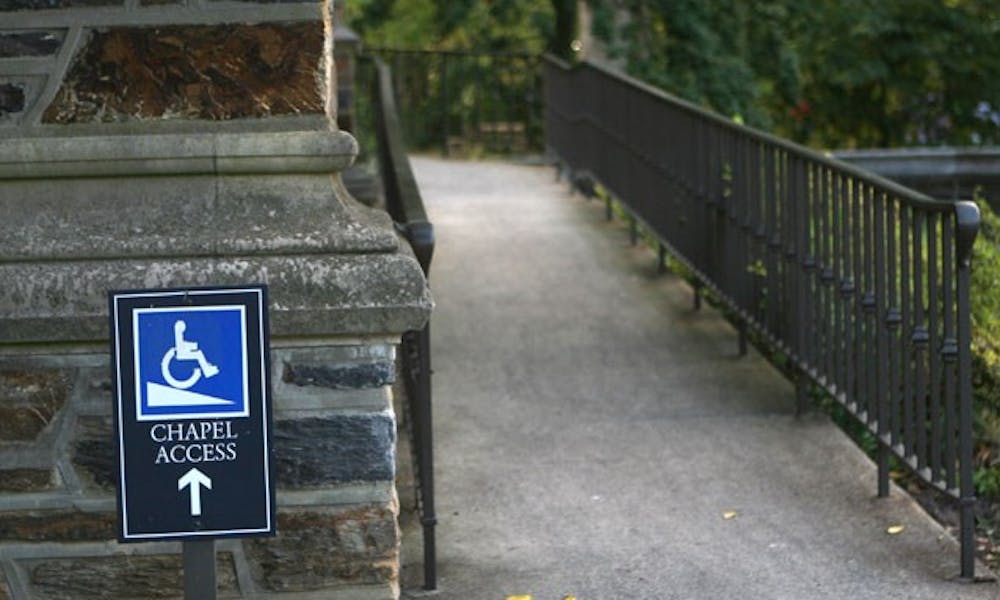According to the United Nations, nearly 10% of the world’s population has a disability. At Duke, 1,011 students are registered with the Student Disability Access Office, which provides a variety of accommodations for students with disabilities.
According to a 2019 survey administered by Duke Disability Alliance, “multiple respondents” noted that they feel isolated or disconnected from the Duke student body. Student groups have pushed for expanded support and resources for students with disabilities in recent years.
The Chronicle has compiled a list of resources available to Duke students with disabilities, as well as allies involved in disability advocacy.
Accommodations and academic support
The SDAO provides academic and housing accommodations for students with disabilities. Accommodations include but are not limited to extended time on assessments, dorm assignments and assistive devices.
Each student is assigned a case manager who works with them to “[eliminate] environmental barriers impacting the student’s equitable access to the campus facilities, programs and activities,” according to the SDAO website.
Students seeking accommodations must submit medical documentation from licensed professionals that outline the history and nature of the disability. The SDAO provides medical documentation guidelines on their website.
The SDAO holds virtual office hours on Zoom every Monday through Friday from 10 to 11 a.m. and 2 to 3 p.m. SDAO Director Cort Schneider holds “Conversations with the Director” every Monday, Wednesday and Friday from 12:30 to 1:30 p.m.
For more information about accessing accommodations, students can contact sdao@duke.edu or call (919) 668-1267.
Among other things, the Academic Resource Center also provides academic support to students with learning disabilities and attention deficit hyperactivity disorder. The Center’s learning consultants lead one-on-one coaching sessions with students. Students that suspect they may have a learning disability or ADHD can also schedule a screening through the ARC to help determine a helpful course of action.
Students can make appointments with the ARC here or contact theARC@duke.edu or (919) 684-5917 for more information.
Student life
Many student groups are working to combat stigmas surrounding disabilities and advocate for expanded resources for students with disabilities.
The Duke Disability Alliance is leading the fight for expanded accessibility on Duke’s campus. The organization’s current advocacy goals include working with professors to promote accessible learning for neurodiverse students, improving the physical accessibility of Duke’s campus and instituting American Sign Language Courses that fulfill the Trinity language requirement.
The DDA recently celebrated the launch of a Disability Cultural Center, a space designed to facilitate community-building and comfort for students with disabilities. The Center will house a library of literature related to disability studies and showcase works of art illustrating the disabled experience.
Though the center is not physically open yet due to COVID-19, the DDA is hopeful that it will welcome students in-person in the fall, said junior Simran Prakash, co-president of the group. The space is located in Room 033 of the Bryan Center.
Other student groups working to make Duke’s campus more accessible include Duke ASL, Duke Student Government’s Equity and Outreach Committee, Duke eNable, Law Students for Accessibility, National Alliance on Mental Health at Duke, Duke Neurodiversity Connections and Duke’s chapter of Runway of Dreams.
Editor’s Note: Prakash is also photo editor for The Chronicle.
Get The Chronicle straight to your inbox
Signup for our weekly newsletter. Cancel at any time.

